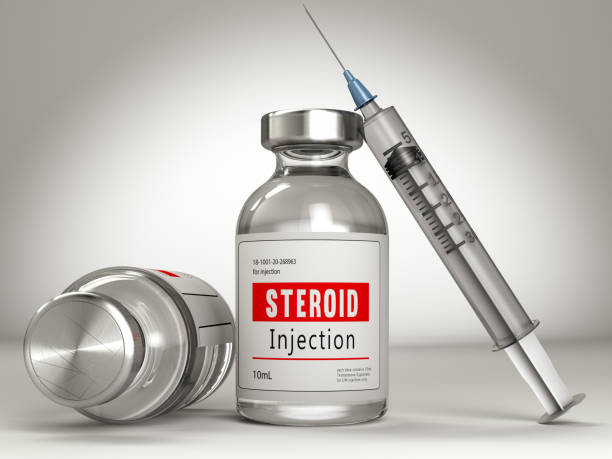
Knee Injections
The How and Why of Joint Injections
The method and type of joint injections a doctor administers to a patient depend on the cause of the discomfort. Inflammation in the joint is the most common reason, whether due to an injury or, more often, arthritis and the bone-on-bone contact it causes.
Pain killers fail
In all of these cases, if rest and oral painkillers like nonsteroidal anti-inflammatory drugs (NSAIDs, such as ibuprofen) or acetaminophen fail to ease the discomfort, your doctor may recommend a joint injection.
Other Causes of Knee Pain
- Inflammation of the muscles and tendons that support the knee can cause pain in and around the joint. Most of this “non-true” knee pain involves problems with the patellar tendon, which connects to the bottom of the thigh muscle and allows the joint to flex forward and backward.
- Beneath the patella, or kneecap, sits a pad of fat that can become pinched during movement.
- The bursa, sacs of fluid that cushion the joint, can become irritated and swell, leading to pain.

Steroid Joint Injections
The most common injection is a mixture of a steroid, such as hydrocortisone, to soothe inflammation, and a local anesthetic, such as lidocaine or bupivacaine, to numb the nerves in the area. The correct spot can usually be found by feeling the knee, but the injection can also be done with ultrasound guidance to increase accuracy and improve patient comfort. Fluoroscopy, a form of real-time X-ray, may also be used to ensure the medication spreads throughout the joint as desired.
The anesthetic serves two purposes: to immediately block your pain and to signal to the doctor that your knee itself was the cause of the discomfort, as opposed to the hips or even the back. If the pain diminishes significantly when the knee is numbed, it indicates the knee is the source of the pain.
The numbing effect wears off after a few hours to a few days, giving the steroid time to take effect. The steroid will gradually decrease inflammation over a week or two, and depending on the issue within the knee, it may provide relief for several months or even be more or less permanent.
Who Should Get Steroid Joint Injections for Knee Pain?
Steroid injections are most effective for people who have had recent acute trauma to the knee, triggering bruising and inflammation in the joint. If the inflammation decreases and the fluid is reabsorbed as a result of the injection, the pain should not return unless the injury recurs.
For those whose pain is caused by chronic problems, such as arthritis or excess weight, repeat injections may be necessary. However, corticosteroids can damage the bone and other organs, so doctors typically limit the use of these drugs to no more than about four injections per year.
This can be a consideration for people with arthritis, who might also receive injections for other areas of their body. Doctors must be aware of all the injections a patient might be getting to avoid excessive steroid use.
Steroid Joint Injection Safety
Steroid joint injections can usually be performed in an office setting, with the injection itself lasting about five minutes. Although the procedure is generally safe, infection of the joint can be a risk, so precautions are taken to keep the area sterile. Ultrasound or X-rays may be used to guide the needle to the right location for the medication to be most effective.
Most people can expect to return to normal activities within a few days of the joint injection. You might feel better just from the local anesthetic numbing the joint, so take caution on the day of the injection to ensure the improvement lasts before resuming regular activities.
If the joint injection is performed for inflammation in a tendon or the bursa of the knee, patients are advised to avoid vigorous activity for a week or two because the steroid can temporarily weaken the knee tendons.
Higher-impact sports like running are more likely to aggravate the underlying problem, but generally, patients are encouraged to resume activities they enjoy after a joint injection. If this minimally invasive approach does not suffice, it might be time to consider surgery.
Viscosupplementation
This involves injections into the joint of hyaluronic acid, a gel-like substance that can bind to any remaining cartilage to create a protective barrier between the bones of the knee. The idea is that now when the joint is working, it wears away the gel instead of the underlying cartilage. Viscosupplementation has been shown to last for at least six months, and often longer. With more than one injection, the procedure can delay the need for knee surgery by five to seven years. Hyaluronic acid comes in several forms, some of which can be administered in a single injection, others requiring multiple shots over several visits to the doctor. The key is that it has to work for you longer than six months for it to be worthwhile.
Stem Cell Treatments and Regenerative Medicine
While steroid injections target inflammation and viscosupplementation can slow the pace of damage to the knee, stem cell injections aim to rejuvenate damaged cartilage. The most common form of stem cell injection is called PRP, short for platelet-rich plasma. PRP uses blood taken from the patient, spun in a centrifuge to obtain a concentrated dose of platelets (cells that help the blood clot) and stem cells, which are special cells that can become virtually any type of tissue in the body. This mixture is then injected back into the knee, where the hope is that the cells will aid in the repair and restoration of healthy tissue.
To date, stem cell injections have been most beneficial for treating injuries to tendons, such as the Achilles’ tendon of the lower calf and the extensor tendon that acts up in people with tennis elbow. The hope is that in the future, more specific subtypes of stem cells can be identified or cultivated with a higher chance to regenerate cartilage.





